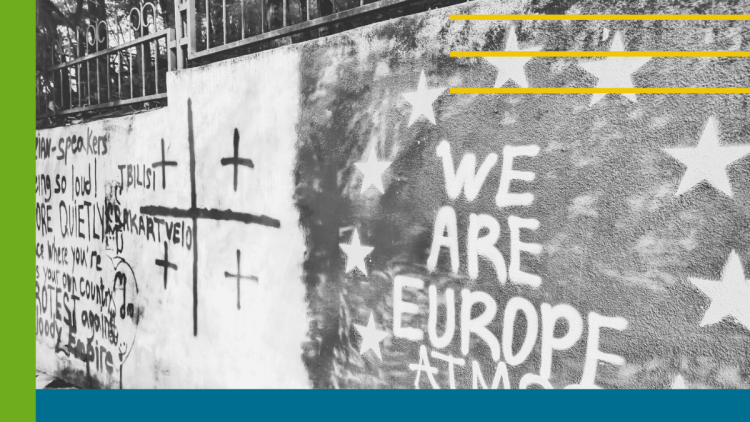
Alongside CSOs’ and media organisations’ significant move to repeal the law “On Transparency of Foreign Influence” , President Salome Zurabishvili and opposition parliament members have also submitted separate lawsuits, underscoring the widespread opposition to the law and reflecting a united front against the legislation that is reminiscent of Russia's repressive measures.
President and civil society push back against the law
After the adoption of the law, discussions about filing a lawsuit with the Constitutional Court intensified among political circles and civil society. On 30 May, some Georgian CSOs announced their intention to prepare a constitutional lawsuit. By July, two different lawsuits were filed, including President Zurabishvili's submission on 15 July and the joint lawsuit of civil society and media organisations registered on 17 July.
President Zurabishvili's lawsuit argues that the law contradicts Article 78 of the Georgian Constitution, which mandates all constitutional bodies to ensure Georgia's full integration into the EU and NATO. Her lawsuit also challenges several norms of the law that violate fundamental rights guaranteed by the constitution and seeks both the suspension and ultimate cancellation of the law.
The president's lawsuit sets a precedent for two reasons: it marks the first time the President has addressed the Constitutional Court, and it raises the issue of a potential violation of Article 78, a first for the court.
On the other hand, the lawsuits from civil society and media organisations emphasise the law's violation of the right to association and expression. They argue that the law, dubbed the "Russian law," creates a hostile environment that threatens civil liberties. Alongside their lawsuit, these organisations demand the suspension of the law's unconstitutional norms as a temporary measure until the court's final decision.
How the lawsuits could define Georgia’s democratic future
In practice, the outcome of these lawsuits will significantly affect civil society in Georgia. If the Constitutional Court rules in favour of the plaintiffs, it could halt the implementation of a law that has been seen as a tool for stifling dissent and suppressing independent voices. The lawsuits highlight the critical importance of protecting CSOs and media from repressive measures that echo those used in Russia. The case also underscores the broader struggle for maintaining democratic principles and aligning Georgia with European standards. The court's decision will be closely watched as it could set a precedent for future legal battles over civil liberties and the rule of law in Georgia.
The court has up to 11 months to make a decision, which includes the possibility of extending the review period, though this does not guarantee a prompt resolution. In the meantime, civil society and media organisations plan to continue their advocacy efforts and prepare additional appeals to the European Court of Human Rights if necessary.
Original photo by Jelger Groeneveld from https://www.flickr.com/photos/saab99/53684060923
